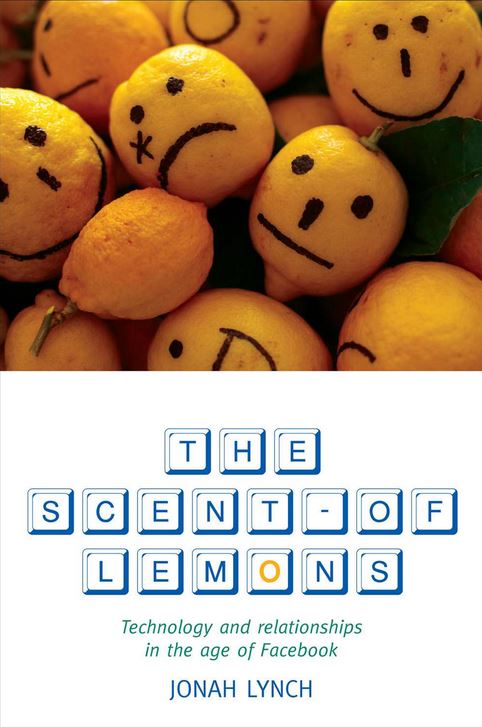The Scent of Lemons: the non-neutrality of new media and emerging technologies
In the last 20 years or so, the revolution in communications technology has radically changed the lives of billions of ordinary people. In many ways, this technology has made our lives easier: communication is speedier, and access to information, entertainment, and services is easier and more democratic. We talk a lot about progress and achievement in this area: smaller laptops, more multi-functional smartphones, better mobile coverage, longer-lasting batteries… What’s surprising, and a little worrying, is how little we reflect on the spiritual and ethical side of this revolution.
We certainly talk about some symptoms – cyberbullying, pornography – but rarely reflect deeply on the underlying phenomena. It’s as if we are so breathless at the pace of progress in communications technology – or so absorbed in its use – that we don’t have the energy or perspective to assess these new phenomena at a non-superficial level.
Given this situation, Fr Jonah Lynch’s little book, The Scent of Lemons, is a very welcome publication. It’s written by a self-professed ‘nerd’ who is thoroughly pro-technology (he had his first email address in 1994, well ahead of the posse). As a priest and a member of ‘Communion and Liberation’, though, he has had to reflect on what communications technology is doing to human relationships. He sums up the purpose of his book with a nice example: ‘What is the difference between laughing in the company of friends, and writing ‘hahahaha’ on a chat screen?’
One of the things Lynch does best in this book is to show that the questions he is asking are relevant. Many of us assume that our tools are neutral, that we decide how to use them and that we are in command of them as long as we use them. When we extend this model to communications technology, spiritual and ethical questions simply dissolve away: ‘Of course my mobile phone use hasn’t changed me: I use it when I want to, and don’t use it when I don’t want to’.
Lynch blasts this ‘neutral tools’ myth by appealing not to philosophy or theology, but to neuroscience. The discovery of ‘neuroplasticity’ shows that the tools we use and practices we engage in have a physical effect on our brain, which shapes our reactions in future. Lynch concludes: ‘Every technology carries with it a change in our approach and relationship with the world. This is precisely not neutral, since everything depends on which aspects of life are made easier and which are made more difficult, or impeded’ (36).
Lynch is at his best when he is showing this ‘life-shaping’ effect of technology: mobile phones change our attitude to appointments and ‘eliminate space’ (34); social media make it possible to put up ‘window displays’ about one’s life (59); Internet use shortens our attention span and limits our ability to read slowly and perceptively (25); images and sounds can be communicated by technology, but not touch, taste, or smell, so that ‘the scent of lemons’ is absent from our technological experience (1).
In all of these little reflections, the author makes use of a wide variety of excellent commentary (and I for one will be looking up some of the books he refers to) but he always writes very personally, with an emphasis on real lived experience. For this reader, at least, such a personal reflection sparked some of my own, and got me asking some important questions, including the most important one: ‘Is this way of using the phone/laptop/television/Internet helping me to become the best version of myself?’
In short, this book is well worth getting hold of if you have any interest in the anthropological effects of technology (and maybe especially so if you don’t have such an interest). Lynch isn’t setting himself up against technology, but is firmly in favour of an informed, canny re-humanisation of technology use. We are immersed in technological practices but true freedom demands that these practices by guided by an appropriate ideal:
Only an ideal that is both beautiful and plausible has the requisite strength. It must be beautiful: it must have an attractive force, it must be more appealing than the alternatives. And it must be plausible, otherwise it will only be an illusion (85).
This formation of guiding ideals for technological use is surely one of the most urgent tasks for all of us, whether Christians or not. The Scent of Lemons is a valuable contribution to this common task.
Tags: featured, media, technology


















Indeed I think Brother Conor is correct in his analysis of the way these new technologies are speeding up and depersonalising communications – I suspect it’s just a matter of time before we even get the scent of lemons etc – as predicted by people like George Orwell and the ”feelies” .
Of course we need a healthy critique – every new invention has its pitfalls but I prefer to see these developments as offering wonderful new opportunities for evangelisation. They are a gift.